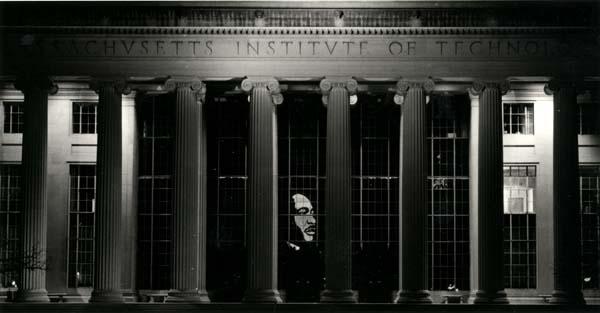
View from Killian Court of MLK Design Seminar Exhibit in Lobby 10, 2002
Early MLK Exhibits
In April of 1968, MIT cancelled classes to join the nation in mourning the assassination of Dr. Martin Luther King. His death directly led to the formation of the MIT Black Students’ Union, as well as Interphase, a summer program that to the day prepares incoming students for the rigors of MIT.
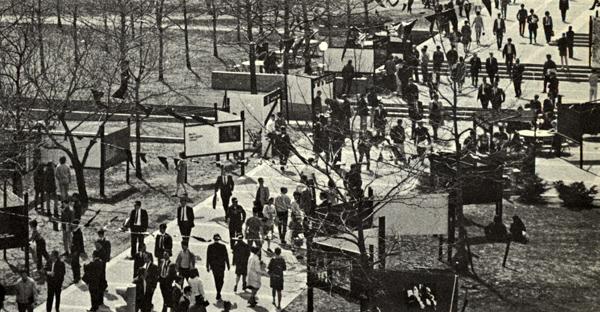
MLK Observance exhibit at the Student Center, late 1960s
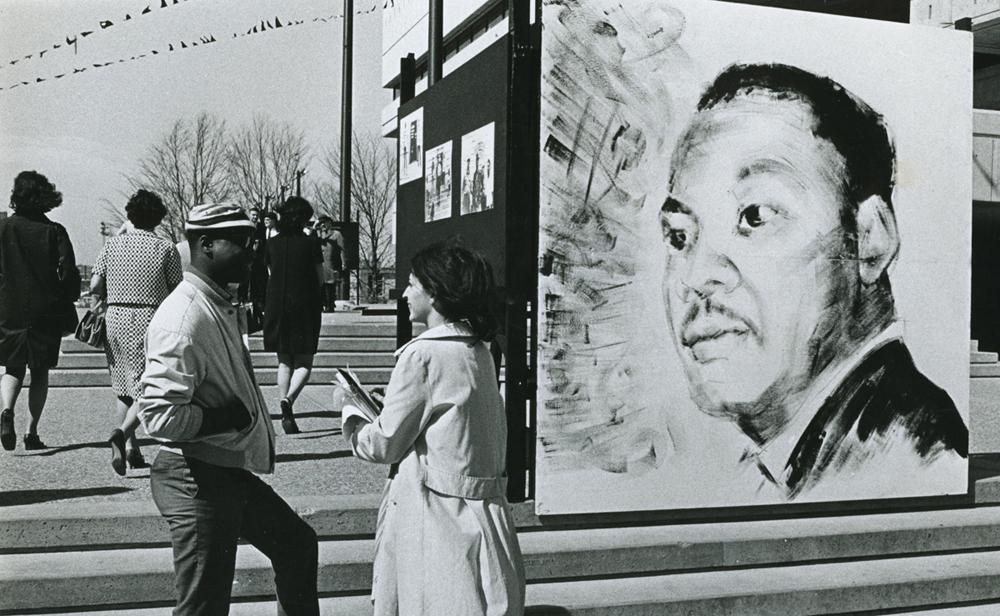
MLK exhibit at the Student Center, 1968

"Where do we stand?" banner at Kresge Auditorium, 1968
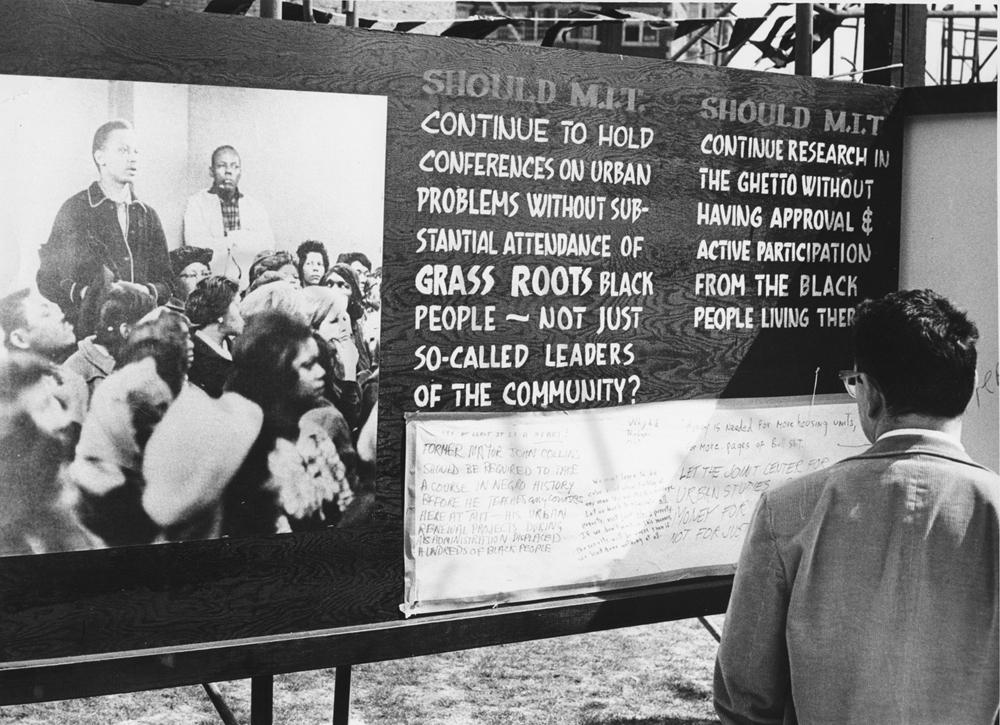
Exhibit near the MIT Student Center, 1968
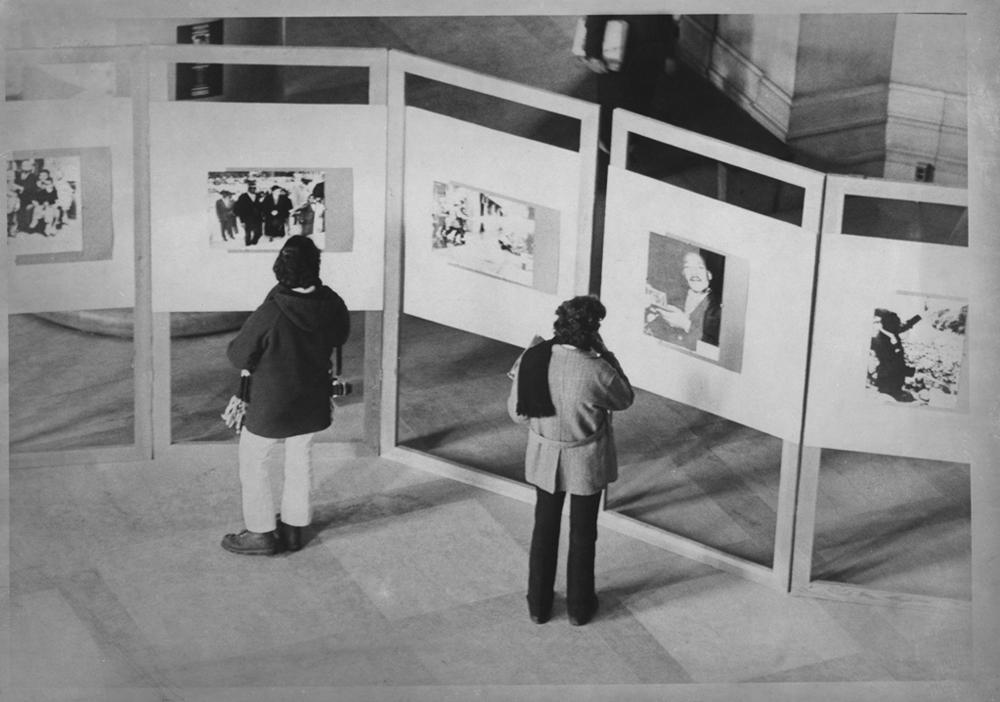
MLK Exhibit in Lobby 7 the year Martin Luther King Day was designated an Institute holiday, January 1976.
MLK Commemorations
MIT began its annual commemoration of Dr. Martin Luther King, Jr. in 1975, seven years after his assassination. The yearly memorial activities feature a march, a breakfast, and Dr. King-inspired lectures on campus by prominent speakers from across the disciplines, including Coretta Scott King in 1994.
Martin Luther King Day became a designated Institute holiday in 1976, a decade before its first official observance as a federal holiday.
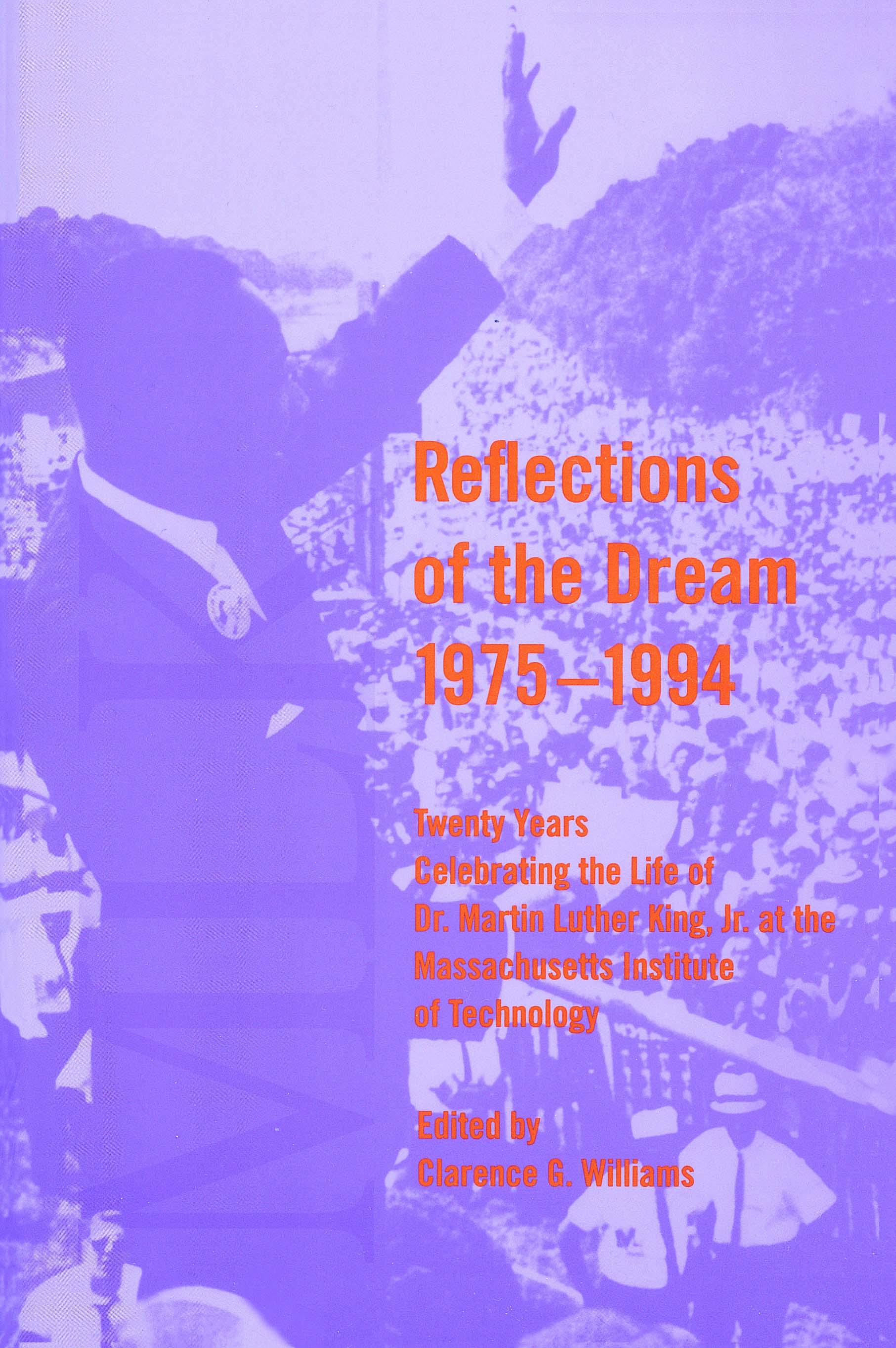
Edited by Clarence G. Williams
MIT Press, 1996
Bringing together speeches given at the Institute's annual King Day convocation, this book celebrates two decades of commitment by MIT to honoring the honoring the memory and furthering the work of Martin Luther King, Jr. In reading these speeches, one catches in reflection twenty years of turmoil and change, some positive (including an increasing number of speakers drawn from the ranks of MIT's African American alumni/ae) but much negative, in which Dr King's dream has been a continuing beacon for action. Speakers have included leaders who are prominent both nationally and in the local (Boston/Cambridge) community, in accordance with Dr. King’s dual emphasis on global and local issues. The book closes with Coretta Scott King’s twentieth-anniversary address in 1994.
MIT MLK Visiting Professors and Scholars Program
The annual MLK Celebration's public events and lectures paved the way for bringing several visiting professors across disciplines to campus each academic year under the MIT Dr. Martin Luther King Jr. Visiting Professor and Scholar Program.
In 1988, MIT appointed a committee chaired by Professor Michael Feld of the Physics Department (NASA astronaut Ronald E. McNair‘s PhD advisor and mentor). The Institute Committee was charged with considering how MIT could further call community attention to Dr. King’s life, work, and contributions. Among the committee’s recommendations were the establishment of the MLK Visiting Scholars program in 1991 and its expansion, the MLK Visiting Professors program, in 1995. Since then, the MLK Visiting Professors and Scholars Program has enriched the intellectual life of MIT.
The first ever appointed Visiting Scholar was Henry C. McBay, a retired professor of chemistry at Morehouse College, Dr. King’s alma mater. His dedicated service to the fields of chemistry and teaching included developing a treatment for prostate cancer and advancing a chemistry education program in Liberia on behalf of UNESCO in 1951.
The four inaugural Visiting Professors appointed in 1995 were: Wesley Harris (aeronautics and astronautics), Richard Joseph (political science), Steven Lee (mathematics), and Oliver McGee (civil and environmental engineering).
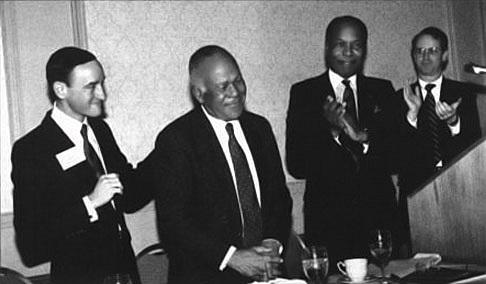
MIT MLK Celebration Banquet, December 1990. Left to right: Mark S. Wrighton, MIT Provost; Henry C. McBay, inaugural MLK Visiting Scholar; Louis Sullivan, US Secretary of Human Services; and Charles M. Vest, MIT President.
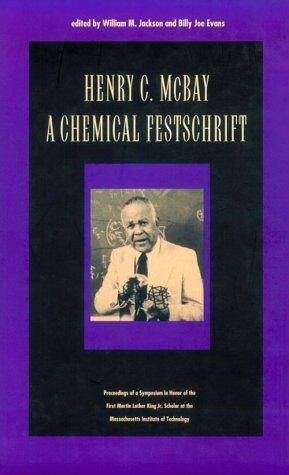
Edited by William M. Jackson and Billy Joe Evans
MIT Press, 1994
Proceedings of a symposium honoring Henry C. McBay as the Institute's first MLK Scholar. The volume opens with a biographical chapter by science historian and MIT professor Kenneth R. Manning. Appendices include a list of Dr. McBay's publications and of chemistry majors under him who went on to earn doctoral and medical degrees.
MLK Design Seminar
Since 1991, the MLK Design Seminar has brought MIT and Wellesley students together each January, during the Institute's Independent Activities Period (IAP), to create artistic and political campus installations to coincide with the Institute commemorations.
In the seminar taught by Tobie Weiner (Course 17.922), students develop an in-depth understanding of the history of US racial issues, as well as past and present domestic and international political struggles. Then groups work to complete installations and other projects that connect academics with real-life problems and struggle.
MLK Leadership Awards
Beginning in 1995, MIT has awarded annual MLK Leadership Awards to students, alumni, staff, groups and faculty who embody the spirit of Dr. King’s work. “Service to the community” is defined in the broadest sense and includes academic, research, religious, and secular contributions in which integrity, leadership, creativity, and positive outcome are apparent.
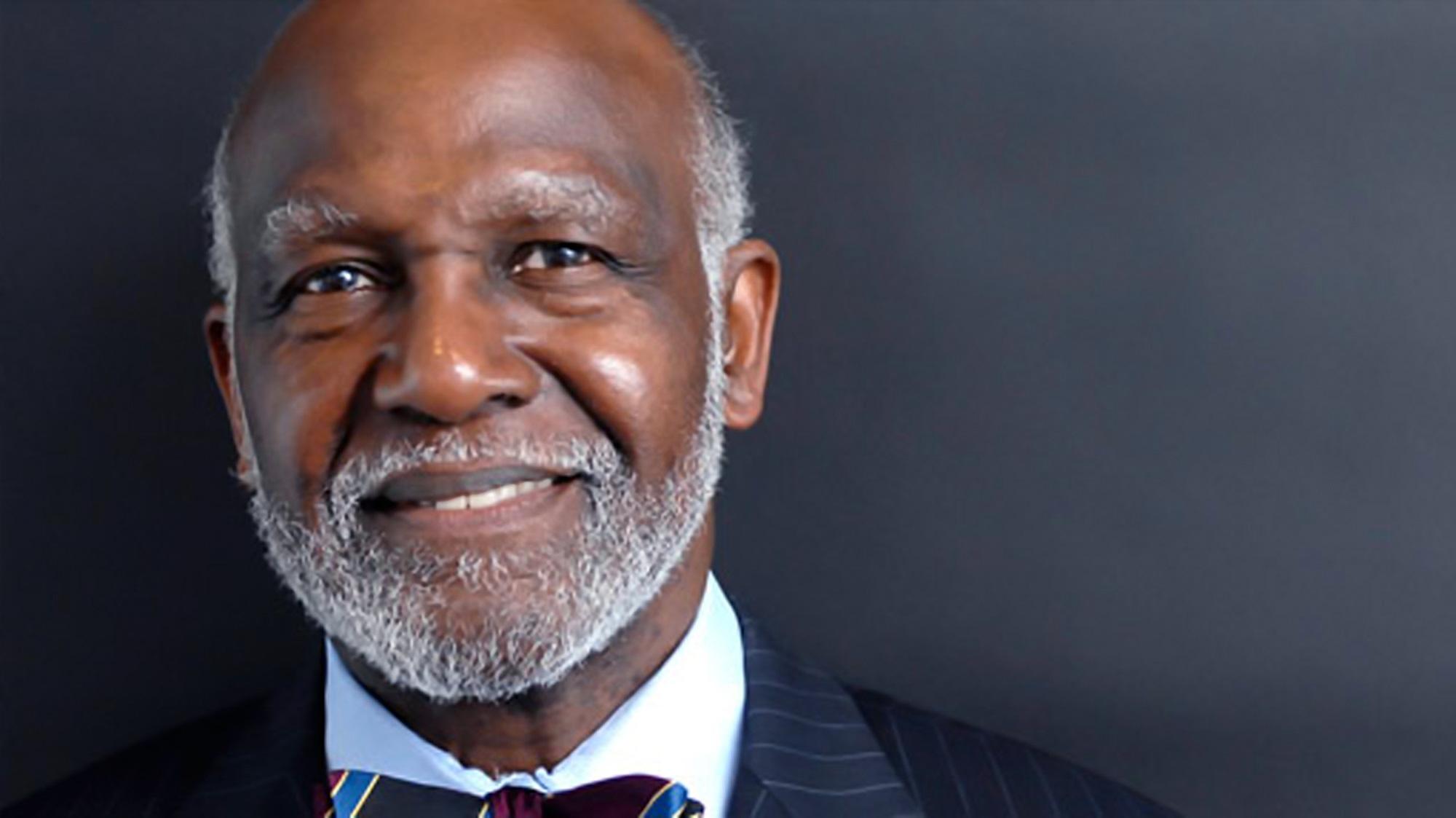
MLK Day Marches
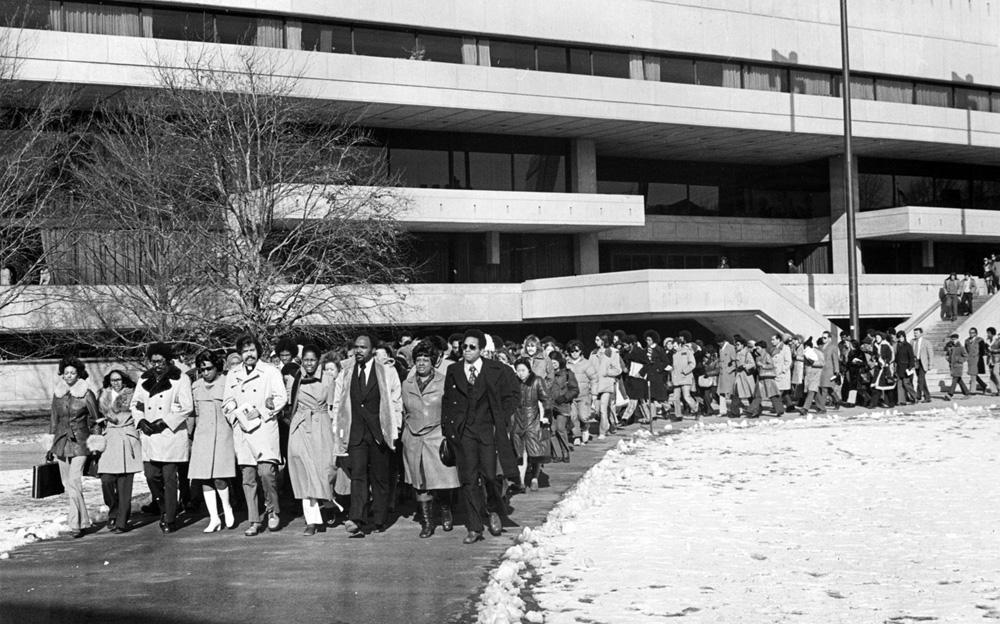
MIT's first MLK Day march at the Student Center, 1975
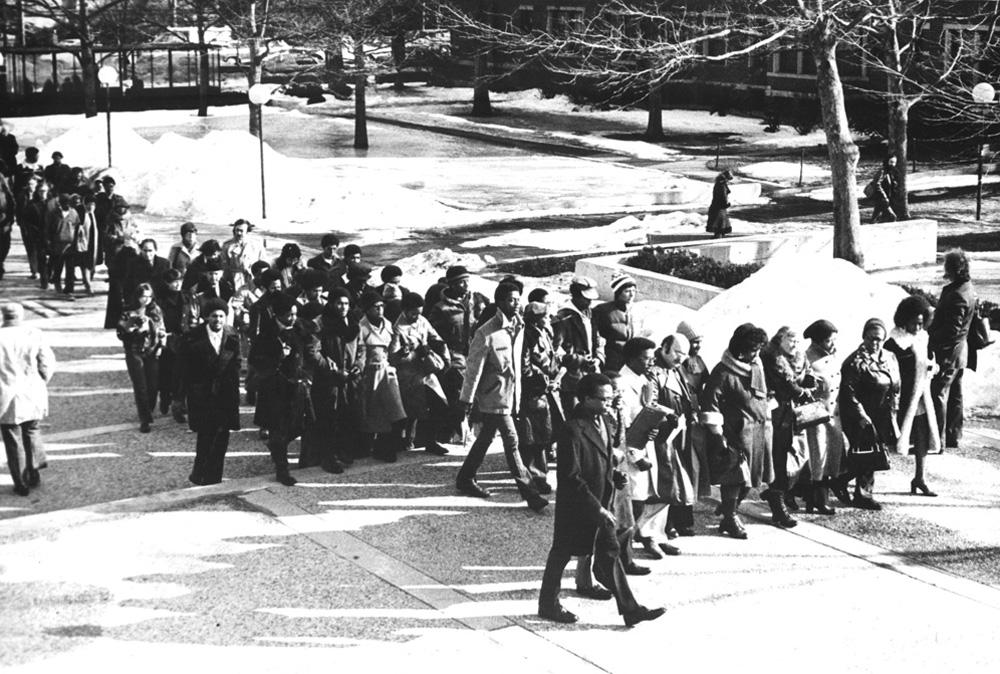
MLK Day march at the Student Center the year Martin Luther King Day was designated an Institute holiday, 1976
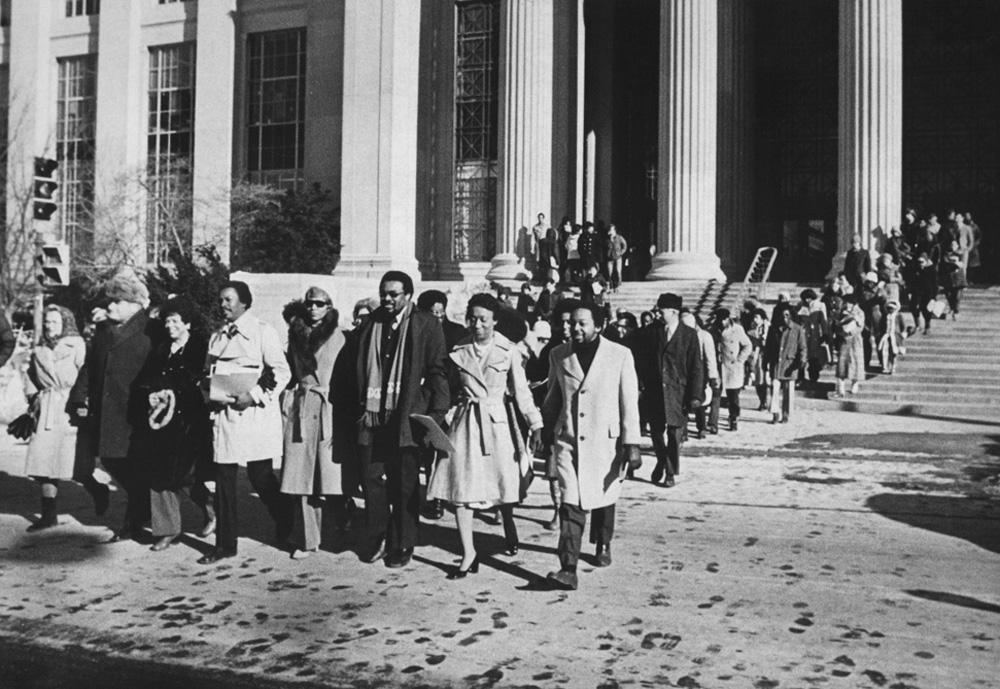
MLK Day march at 77 Massachusetts Avenue, 1977
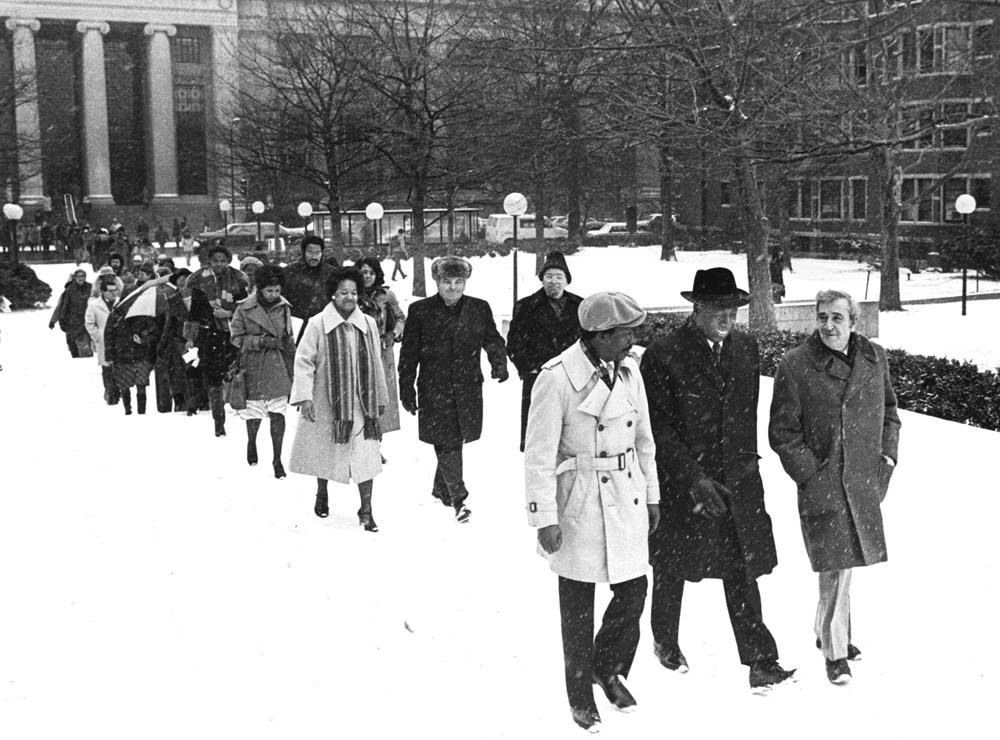
MLK Day march at the Student Center, 1978.
Front row, left to right: Clarence G. Williams (MIT Special Assistant to the President), Jerome H. Holland (New York Stock Exchange and MIT Corporation board member), and Jerome B. Wiesner (MIT President); second row, left to right: Josie Bertie (Secretary to the MIT Special Assistant to the President) and Paul E. Gray (MIT Chancellor).
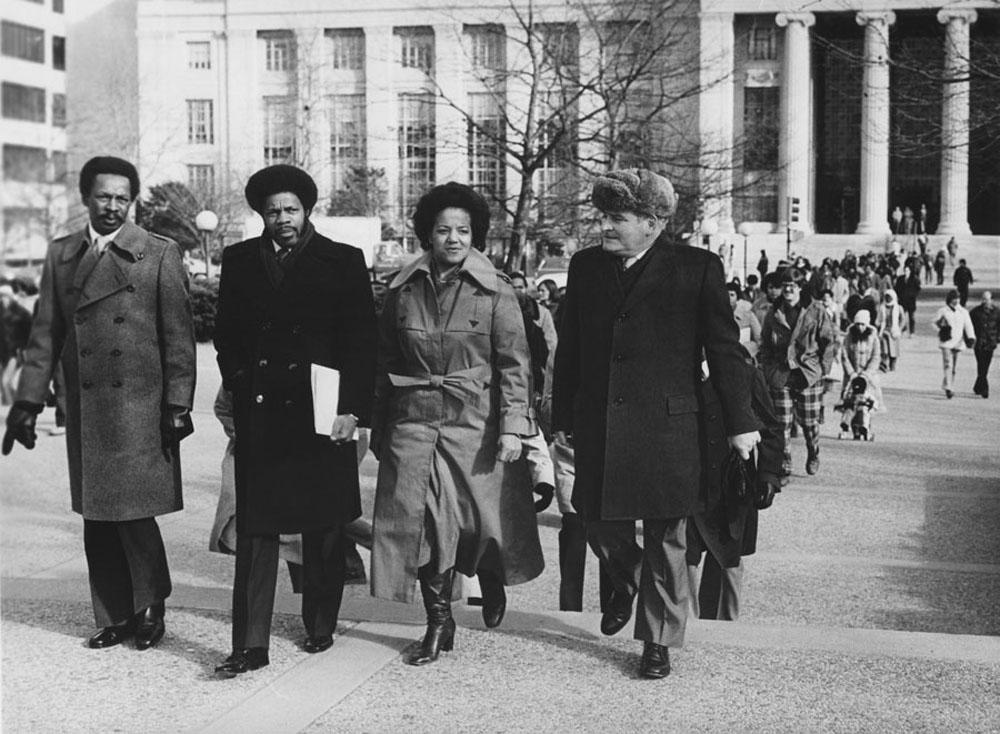
MLK Day march at the Student Center, 1979.
Front row, left to right: Clarence G. Williams (MIT Special Assistant to the President), Rev. Melvin G. Brown (Union Baptist Church, Cambridge), Josie Bertie (Secretary to the MIT Special Assistant to the President), and Paul E. Gray (MIT Chancellor).
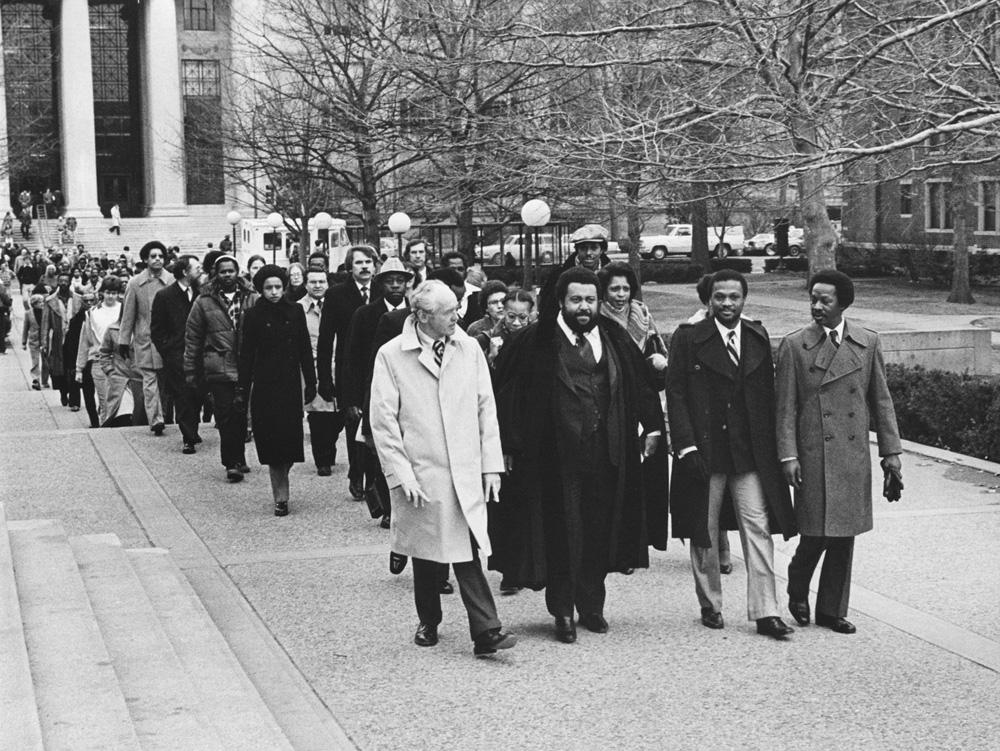
MLK Day march at the Student Center, 1980.
Front row: Rev. Anthony C. Campbell (second from left; Boston University preacher in residence) and Clarence G. Williams (far right; MIT Special Assistant to the President)
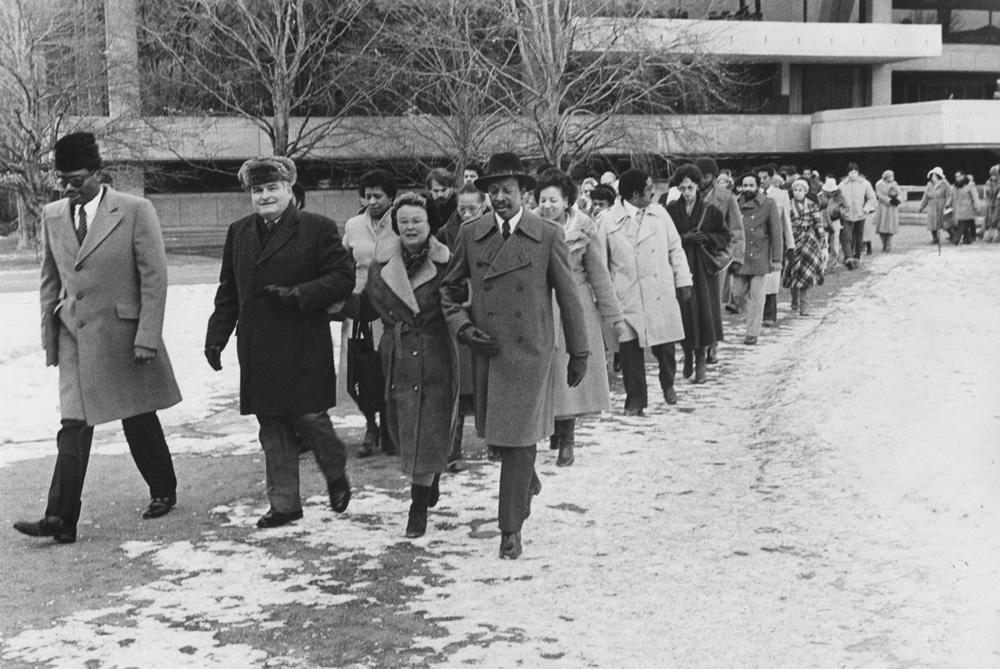
MLK Day march at the Student Center, 1981.
Front row, left to right: Rev. LeRoy Attles (St. Paul AME Church, Cambridge), Paul E. Gray (MIT President), Priscilla K. Gray (MIT Public Service Center co-founder), and Clarence G. Williams (MIT Special Assistant to the President)
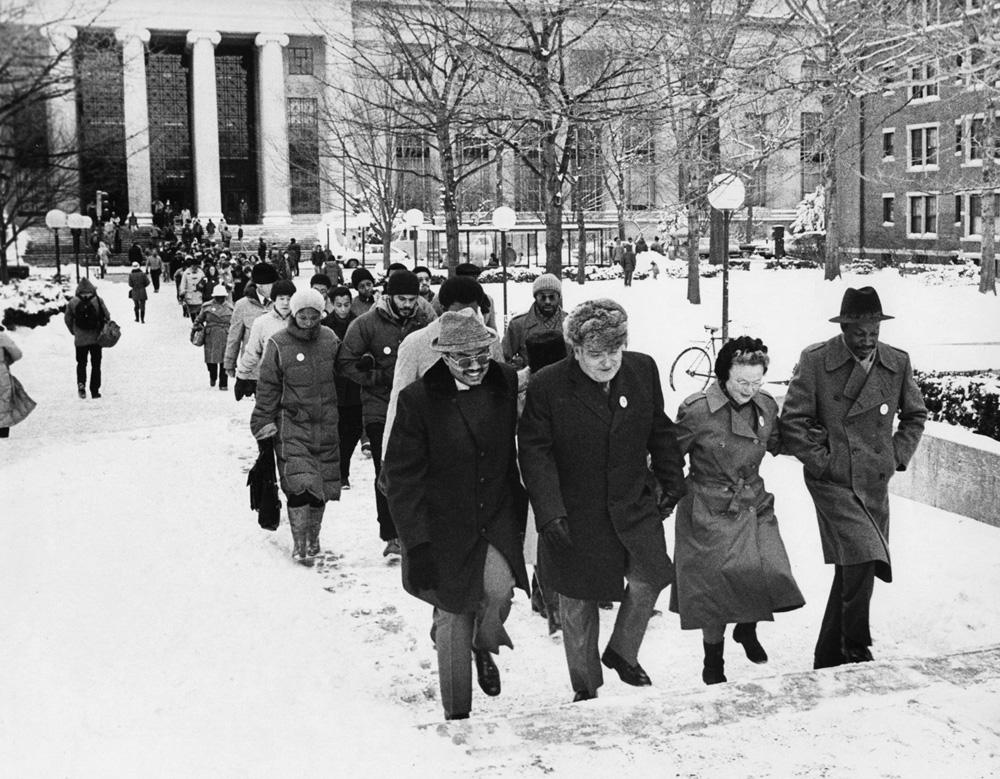
MLK Day march at the Student Center, 1982.
Front row, left to right: Charles S. Brown (AT&T Bell Laboratories), Paul E. Gray (MIT President), Priscilla K. Gray (MIT Public Service Center co-founder), and Clarence G. Williams (MIT Special Assistant to the President)
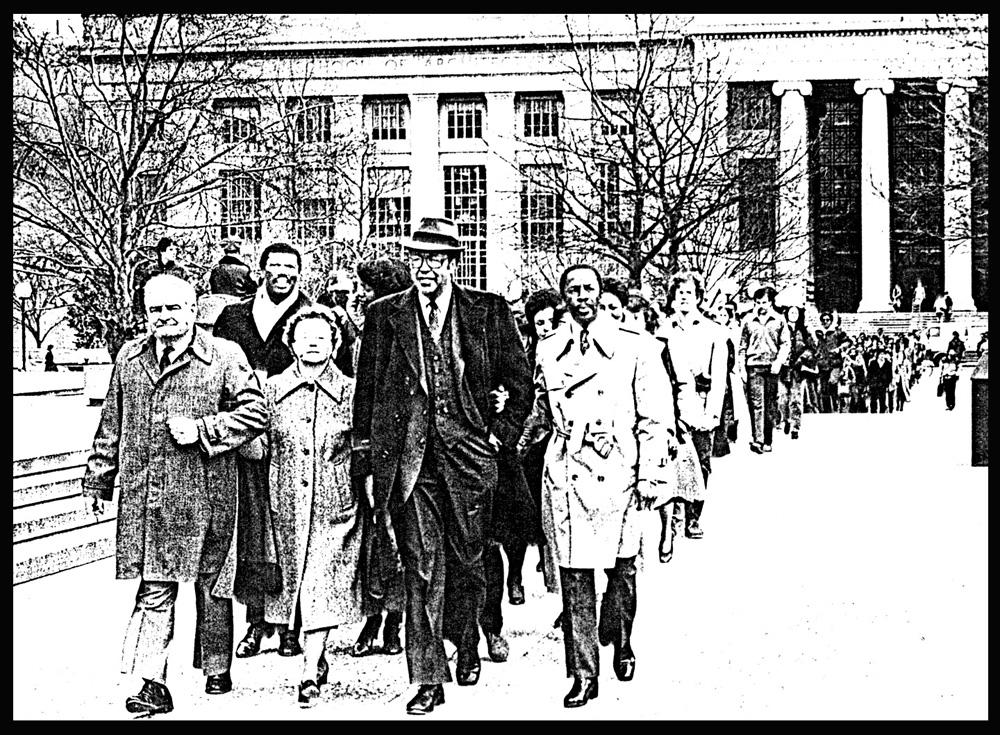
MLK Day march at the Student Center, 1983.
Front row, left to right: Paul E. Gray (MIT President), Priscilla K. Gray (MIT Public Service Center co-founder), A. Leon Higginbotham, Jr. (Presiding Judge, U.S. Foreign Intelligence Surveillance Court of Review), and Clarence G. Williams (MIT Special Assistant to the President)
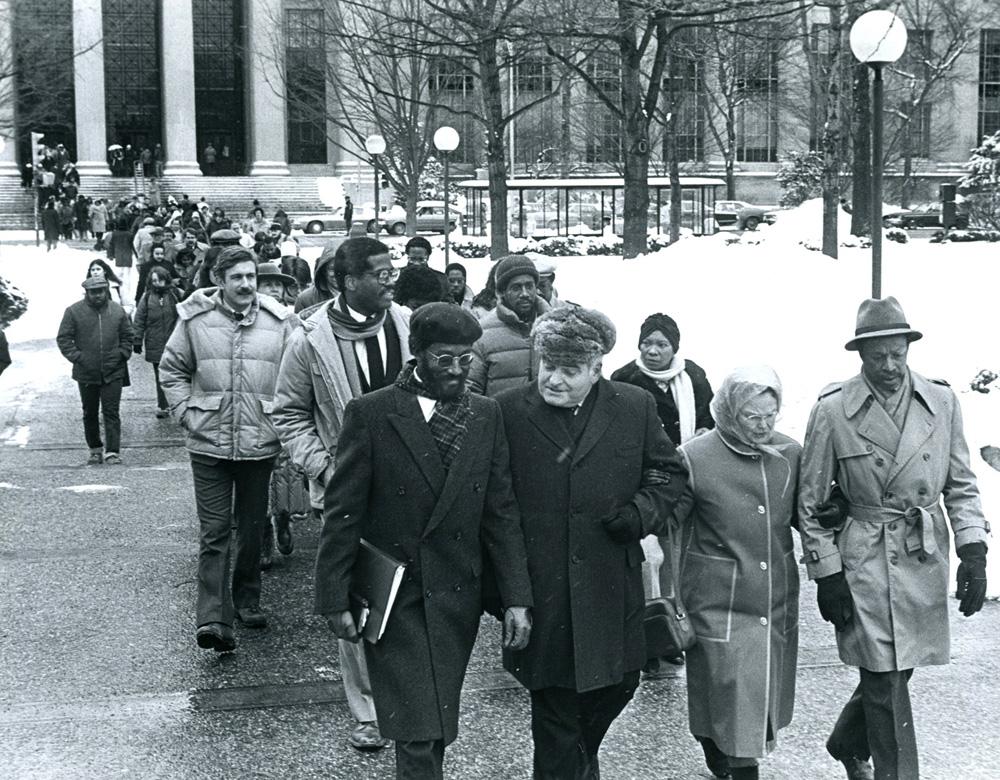
MLK Day march at the Student Center, 1984.
Front row, left to right: Bishop John R. Bryant (AME Episcopal Church) Paul E. Gray (MIT President), Priscilla K. Gray (MIT Public Service Center co-founder), and Clarence G. Williams (MIT Special Assistant to the President)
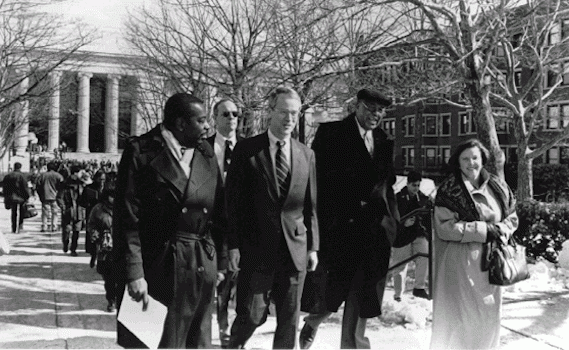
MLK Day march at the Student Center, 1995.
Front row, left to right: Leo Osgood (director of MIT Office of Minority Education), Charles M. Vest (MIT President), A. Leon Higginbotham, Jr. (former U.S. Chief Judge), and Becky Vest.
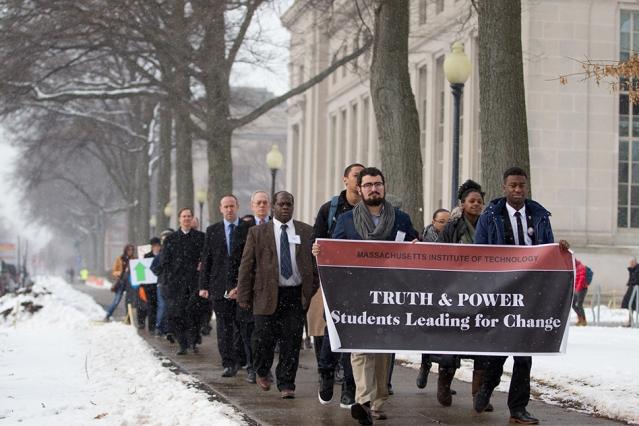
The "Truth & Power: Students Leading for Change" MLK Celebration program began with a silent march starting at Lobby 7 and ending at Walker Memorial Hall, February 2016. Front row, left to right: Alberto Hernández ’17 and Rasheed Auguste ’17.
Annual MIT Martin Luther King Jr Inspired Art and Performance Contest
Since 2013, the Institute Community and Equity Office has hosted the Annual MIT Martin Luther King, Jr. Inspired Art & Performance Contest and dinner celebrating student creativity. Winning entries in the categories of visual art (painting, photography, sculpture, video), performance art (music, song, spoken word, dance, theater), and literary work (poetry, short story, speech, play) each receive $250 cash prizes. The works are inspired by the ideals of Dr. King and/or other civil rights leaders in the past or current human rights activists in the US and the World (i.e., Gandhi, Nelson Mandela, Cesar Chávez, Fannie Lou Hamer, and Harvey Milk). These ideals include freedom, justice, peace, equality, civil rights, human rights and/or social justice. The contest is open to all MIT undergraduates, graduate students, and Wellesley students cross-registered at MIT for the semester.
Below: "Sound Portraits" (2014) by Alexandra Lee, submission to the 2nd Annual MIT Martin Luther King Inspired Art and Performance Contest
Martin Luther King Jr Pocket Garden
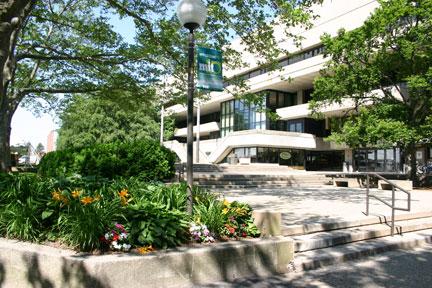
The Martin Luther King, Jr. Pocket Garden at the Stratton Student Center is maintained by the MIT Department of Facilities Grounds Services.
Plant list of perennials:
Astilbe x arendsii ‘Bridal Veil' (Bridal Veil Astilbe)
Astilbe x arendsii ‘Fanal’ (Fanal Astilbe)
Hemerocalis x ‘Stella d’Oro’ (Stella d’Oro Lilly)
Hosta sieboldiana ‘Frances Williams’ (Frances Williams Hosta)
Hosta ‘Gold Drop’ (Gold Drop Hosta)